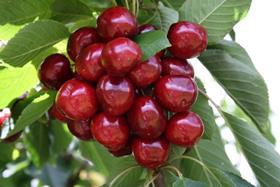
Japan has granted official approval for imports of Chilean cherries under its Systems Approach scheme, which permits seafreighted shipments that have been inspected at origin to enter the country without being subjected to fumigation with methyl bromide.
Until now, only fruit that has been fumigated at source was allowed entry in the market, limiting exports to airfreighted shipments, which made exports expensive and limited volume growth.
Chile’s Agricultural and Livestock Service (SAG) and exporter association Asoex said the ne rules became effective on 19 November, during an inspection by officials from Japan’s Ministry of Agriculture, Forestry and Fisheries (MAFF) to orchards and packhouses in Regions VI and VII.
“We are very pleased about Japan’s decision to allow access to Chilean cherries under the Systems Approach, which demonstrates the trust that other countries place in our institution as a guarantor of the safety of Chilean products,” said ángel Sartori, SAG’s national director. “This is an excellent opportunity for Chilean producers, and for this reason we will continue to undertake a coordinated approach with our counterparts in Japan to ensure that the highest phytosanitary standards are upheld in this and other markets.”
Ronald Bown said the decision was the result of the painstaking and coordinated efforts of the public and private sectors and “the culmination of almost three years of negotiations between SAG, Asoex, the Development Foundation for Fruticulture and MAFF”.
“This is not a market that we can suddenly inundate with large volumes, but rather requires a cautious approach with proper planning,” said Cristian Tagle, president of the Chilean Cherry Committee. “We first need to carry out a careful analysis of the market, which has been in recession for some time.”
Tagle pointed out that Christmas and St Valentine’s Day are the two periods of peak demand for cherries in Japan and should be the focus of exporters.
“As we’ve only had the option of carrying out airfreighted shipments up to now this has kept export volumes in check,” he said. “The decision to allow sea shipments will reduce our transport costs and enable us to supply the market at a much more competitive price, so we are confident that we’ll be able to attract many more consumers to this product.”
Tagle added that the fact that the cherries would no longer be subjected to fumigation would dramatically improve the quality and condition of the fruit.



